Home » About » Awards » Award Recipients » 2022 CEIA Award Recipients
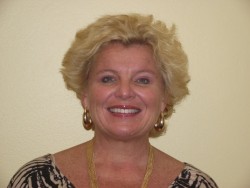 Patricia Bazrod retired in May 2018 from the Georgia Institute of Technology. She has over thirty-four years of experience in career services and cooperative education and internships. In 2019 she was honored to be the recipient of the American Society for Engineering Educations’ Clement J. Freund Award for profound influence and accomplishments that furthered the field of cooperative education programs in engineering or engineering technology programs. She was also nominated and chosen as Fellow to the American Society for Engineering Education in 2015. She began her co-op career as an engineering co-op coordinator in the College of Engineering and Applied Sciences at Arizona State University.
Patricia Bazrod retired in May 2018 from the Georgia Institute of Technology. She has over thirty-four years of experience in career services and cooperative education and internships. In 2019 she was honored to be the recipient of the American Society for Engineering Educations’ Clement J. Freund Award for profound influence and accomplishments that furthered the field of cooperative education programs in engineering or engineering technology programs. She was also nominated and chosen as Fellow to the American Society for Engineering Education in 2015. She began her co-op career as an engineering co-op coordinator in the College of Engineering and Applied Sciences at Arizona State University.
In Cooperative Education, Patricia has a long history of presentations and workshops at the state, regional, national, and international levels. Since 1990, Ms. Bazrod, has been a member of the Cooperative Education and Internship Association (CEIA) and has served as President, President-Elect, Vice-President of the Cooperative Education Network, Past President and is currently serving as the Associate for Member Development and Retention for the organization.
Since 1984, Ms. Bazrod has been a member of the Cooperative Experiential Education Division (CEED) of the American Society for Engineering Education (ASEE), where she has served as Chairman, Program Chair, Secretary-Treasurer, Chair-Elect, and on the Executive Board as that national professional organization’s Archivist. She has served on the ASEE Board of Directors as the PIC V Chair and has had various leadership roles for the annual Conference for Industry and Education Collaboration (CIEC) including General Conference Chair.
She is the recipient of the CED 2005 Borman Award for outstanding service to the field of cooperative education and has served as a trainer and program reviewer for the Accreditation council for Cooperative education. (ACCE).
Patty lives in Atlanta, Georgia with her husband Larry and though he still works, she has taken up golf, leisure travel, Formula 1 racing (huge fan) and both she and her husband enjoy wine tasting and have become avid collectors of several types of wine.
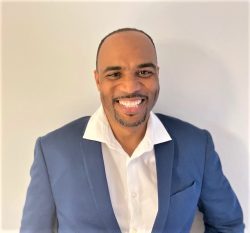 Kevin Jones is the current Regional Internship & Recruitment Coordinator for the Florida Department of Transportation (FDOT) where he has worked for the last 7 years. In his capacity, he supports and facilitates the FDOT Internship Program for five of the eight District offices throughout the agency. He also coordinates and collaborates recruitment and outreach engagements at 20 colleges and universities, including Historically Black Universities and Colleges, Hispanic Serving Institutions, and both private and state institutions.
Kevin Jones is the current Regional Internship & Recruitment Coordinator for the Florida Department of Transportation (FDOT) where he has worked for the last 7 years. In his capacity, he supports and facilitates the FDOT Internship Program for five of the eight District offices throughout the agency. He also coordinates and collaborates recruitment and outreach engagements at 20 colleges and universities, including Historically Black Universities and Colleges, Hispanic Serving Institutions, and both private and state institutions.
He works with various student organizations, professors, campus groups, and student groups at colleges and universities across the State of Florida. He is passionate about helping students find their career path through hands on experience and job shadowing opportunities that provide resources for full time employment and long-term professional growth. Kevin continually works with supervisors to ensure the interns are provided a substantial work-based learning experience each semester.
Kevin has been instrumental in preparing interns for full time employment with any state agency. Through different talent acquisition and recruitment efforts, the internship program has grown significantly, not only in size, but also in educational and professional development opportunities for students.
Working in the FDOT’s Office of Organizational Development allows Kevin to assist in organizational change that impacts new talent development, workforce development, and experiential and innovative learning for new and active employees. This also enables Kevin to combine his experience in the field with his passion for helping others succeed and achieve their career goals.
Kevin has a master’s degree in Marketing from the University of Phoenix. He is a member of Florida Association of Colleges & Employers (Florida ACE) and teaches as an Adjunct Professor at various universities and colleges.
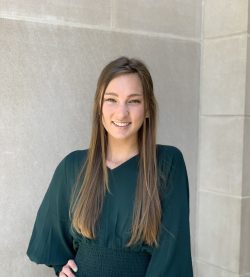 Gwen Yetter is both a senior and first-year MBA candidate at the Pennsylvania State University. Through the five-year accelerated BS/MBA program, she is double majoring in Biology and Psychology while minoring in Neuroscience. As she works to complete her MBA, she is concentrating in Marketing and Supply Chain.
Gwen Yetter is both a senior and first-year MBA candidate at the Pennsylvania State University. Through the five-year accelerated BS/MBA program, she is double majoring in Biology and Psychology while minoring in Neuroscience. As she works to complete her MBA, she is concentrating in Marketing and Supply Chain.
Gwen’s co-op experience was with Merck & Co., a leading pharmaceutical company. She worked closely with the U.S. Benefits and Wellbeing department. Primary responsibilities included developing corporate campaigns and new initiatives meant to improve the mental health and overall wellbeing of employees and their families on a global scale.
Prior to her co-op, she worked as an intern for Merck’s Global Population Health team. She was also the Communications and Marketing Intern at the Hepatitis B Foundation in Doylestown, PA. Outside of her academics and professional experiences, she is a student volunteer for Penn State’s THON, the largest student-run philanthropy. Most recently, she served as the Outreach Coordinator for the Communications committee.
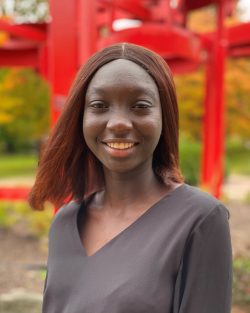 Oluwatumininu (Tumi) Adeeko is a third-year student and a Mechanical Engineering major at Youngstown State University, originally from Nigeria. Tumi was selected as a Wen H. Ko summer intern to work with the Advanced Platform Technology (APT) Center at the Cleveland VA Medical Research and Education Foundation from June 2021. Her first project, titled the “Mechanical characterization of nitinol wires used in orthodontia,” involved tensile and fatigue testing, failure analysis, and mechanical characterization of different grades of shape memory alloys used in making dental archwires. Her work provided additional data for an ongoing study into the same topic and will be crucial in helping clinicians determine the appropriate materials to use for different stages of orthodontal treatment.
Oluwatumininu (Tumi) Adeeko is a third-year student and a Mechanical Engineering major at Youngstown State University, originally from Nigeria. Tumi was selected as a Wen H. Ko summer intern to work with the Advanced Platform Technology (APT) Center at the Cleveland VA Medical Research and Education Foundation from June 2021. Her first project, titled the “Mechanical characterization of nitinol wires used in orthodontia,” involved tensile and fatigue testing, failure analysis, and mechanical characterization of different grades of shape memory alloys used in making dental archwires. Her work provided additional data for an ongoing study into the same topic and will be crucial in helping clinicians determine the appropriate materials to use for different stages of orthodontal treatment.
A notable achievement is her participation in “Intersections,” a symposium hosted by Case Western
that enables undergraduates to present their research and creative projects. Her second project contributed to developing a novel medical device, and most of her work involved optimization of tests prints using a Nanojet Aerosol printer- the first of its kind at Case Western.
Tumi remains on the Dean’s list for all her semesters at YSU and has made several appearances on the President’s list. She was the leader of the team that represented Youngstown State University at the Hult Prize- a competition which can be likened to the Nobel Prize for college students- and she led her team to the finals.
Tumi plans on continuing her research in shape memory alloys while earning her master’s and potentially a Ph.D. in Materials Science and Engineering. Tumi has plans to return to her home country, where she will continue her work with materials science and engineering while supporting efforts to empower the youth and encourage young Nigerian women to get interested in STEM.
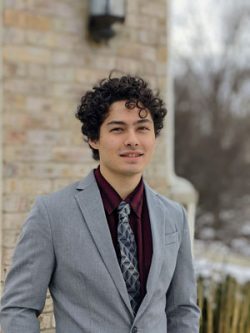 My name is Tomas Sagartz. I am a sophomore at the College of Lake County and am planning to major in both Computer Science and Biology. Due to the COVID-19 pandemic, I had a hard time deciding where to continue my education. Ultimately, after spending 2 semesters here, I am glad that I chose the College of Lake County. I would like to thank the staff at the Career and Job Placement Center at CLC and my student advisor for providing me with so many opportunities and advice, as well as helping me put together a Resume. Without the help from the people here, I would never have been able to participate in the Summer internship program. The experiences I had at my summer internship were great and I feel that they taught me a lot about what it means to work for an organization. I worked for St. Benedict’s Technology Consortium and was tasked with assisting administrators on the PowerSchool platform.
My name is Tomas Sagartz. I am a sophomore at the College of Lake County and am planning to major in both Computer Science and Biology. Due to the COVID-19 pandemic, I had a hard time deciding where to continue my education. Ultimately, after spending 2 semesters here, I am glad that I chose the College of Lake County. I would like to thank the staff at the Career and Job Placement Center at CLC and my student advisor for providing me with so many opportunities and advice, as well as helping me put together a Resume. Without the help from the people here, I would never have been able to participate in the Summer internship program. The experiences I had at my summer internship were great and I feel that they taught me a lot about what it means to work for an organization. I worked for St. Benedict’s Technology Consortium and was tasked with assisting administrators on the PowerSchool platform.
Working at SBTC gave me a lot of useful lessons, mainly about company culture and how to work well with coworkers. There, we spent a lot of time communicating issues and working together to solve a problem. I never felt like I was going into a problem alone, so that reassured me and encouraged me to try to solve more complicated issues. I worked for them from early July to late August, and was offered to work part-time by them during the school year. The work schedule is extremely flexible and tailored toward my school schedule, so I feel very happy that I am able to manage both at the same time. I cannot stress how much I appreciate those who were there to help me begin my journey toward being a professional! Thank you for selecting me for this award, and thank you to those who have and will continue to support me through my journey!
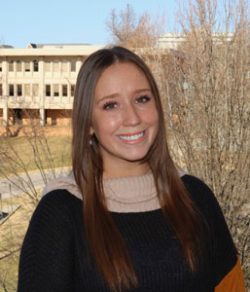 Lydia Mollerup is a senior at the University of Arkansas, majoring in Marketing with a minor in Legal Studies. With a passion for culture and furthering my education in the global business world, she participated in the Walton College Virtual Corporate International Internships with API during the summer of 2021.
Lydia Mollerup is a senior at the University of Arkansas, majoring in Marketing with a minor in Legal Studies. With a passion for culture and furthering my education in the global business world, she participated in the Walton College Virtual Corporate International Internships with API during the summer of 2021.
Lydia worked virtually with Coamesa, a regional consumer goods distribution company headquartered in Costa Rica. As a Business Development Lead, her role was to find companies, both food brands and personal care brands, who supplied Walmart and other retail stores in the United States. An important part of her job was to find a way to contact them and ask if they were interested in selling products to Coamesa, who will distribute the products to Walmart and other retail stores in Central America. She was also given the task to find ways to increase Internet traffic to Coamesa’s website, which allowed her to apply her previously learned coursework.
As Lydia states, “I am truly grateful for this learning opportunity and experience that I was given. I was able to make connections with workers in the company and to learn more about the country’s culture. I will continue to use all the skills that I have gained from this internship for the future.”
Faculty and Staff Contributors // Clemson University
Carl Ehrett, PhD, Troy Nunamaker, Hudson Smith, PhD
Student Contributors // Clemson University
Daniel Smith, Daphne Cottle, Manu Kolluru, Jeremy Mikale Crosby, Martin Scott Driggers, Mary Alice Schultz
Leadership is a career competency that is crucial for employability. Previous research has demonstrated that employers and students define leadership in different ways. This difference may constitute a competency gap that is detrimental to student success. The purpose of this study was to understand the analysis of the language that employers and students use to describe leadership is a useful approach for understanding this difference in perspective. However, this approach is limited by the quantity of text that researchers can feasibly directly analyze. Artificial intelligence and machine learning can be employed to address this limitation. This study demonstrates how a machine learning (ML) framework can be applied to extend researchers’ analysis of a small subset of a large supply of text data to the entire data set.
The study shows that the result is near human-level performance in labeling text data at a scale well beyond what researchers can achieve unaided. This study revealed discrepancies in how mentors and students describe the competency, leadership. The more academicians, employers, policymakers, and recent college graduates can understand the similarities and differences in how we define career readiness, the quicker we can adjust, meet the workforce’s current and future needs, and move towards closing the competency gaps.
Employability has been part of the college graduate fabric and language surrounding degrees-earned for centuries (Peck, 2017). Throughout the twentieth century, the terms soft skills and transferable skills were similarly used by educators and employers when describing college graduates’ employability. The expression career competencies moved to the forefront of the career readiness discussion in the twenty-first century (Human Resources-UNL, 2017, p. 1), but the specific characteristics of both categorizations did not change during that transition. Leadership, communication, critical thinking, teamwork, professional ethics, technical savviness, intercultural fluency, and career management (NACE, 2016) have been competency or soft skill characteristics sought by employers, taught by educators, and leveraged by students (Farrar, 1980). Centuries after Aristotle first complained of Socrates’s career competence a millennium ago, there still appears to be a gap in perceived college graduate performance by employers and students (Peck, 2017).
Nunamaker, Cawthon, and James’ (2020) qualitative study explored the language employers and students used to describe leadership and proposed that both groups define leadership differently. Ultimately, a better understanding of the narrative employers and students use to describe career readiness could offer educators and others a wholly new and unique set of tactics to address those competency gaps that have plagued the workforce for centuries. This study specifically looks at the competency, leadership.
Published in Experience Magazine™ | Practice + Theory + Podcast
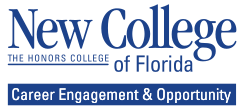 The Sarasota-Manatee Arts & Humanities (SMAH) Internship Program, or more recently called the NCF Community-Driven Internship Program, aims to increase equity and enhance access to paid arts and humanities-related internships through community-driven projects. Arts and humanities students who need to gain experience through internships find that opportunities available are mostly unpaid, creating a barrier for under-resourced students. By leveraging institutional resources, including grant funding and foundation support, this program uniquely funds community-driven projects through a request for internship proposal process, which in turn, provides paid opportunities for students. This model brings the career center, faculty, and community in partnership to develop high-quality internship experiences that meet community needs and correlate with students’ interests. The SMAH Internship Program showed that having access to paid internships increased arts and humanities students’ interest in pursuing an internship as part of their academic program, which is critical for a successful transition into meaningful careers. After a successful year, the program was able to expand its reach beyond arts and humanities internships this academic year with increased support and funding from private donors and community foundations.
The Sarasota-Manatee Arts & Humanities (SMAH) Internship Program, or more recently called the NCF Community-Driven Internship Program, aims to increase equity and enhance access to paid arts and humanities-related internships through community-driven projects. Arts and humanities students who need to gain experience through internships find that opportunities available are mostly unpaid, creating a barrier for under-resourced students. By leveraging institutional resources, including grant funding and foundation support, this program uniquely funds community-driven projects through a request for internship proposal process, which in turn, provides paid opportunities for students. This model brings the career center, faculty, and community in partnership to develop high-quality internship experiences that meet community needs and correlate with students’ interests. The SMAH Internship Program showed that having access to paid internships increased arts and humanities students’ interest in pursuing an internship as part of their academic program, which is critical for a successful transition into meaningful careers. After a successful year, the program was able to expand its reach beyond arts and humanities internships this academic year with increased support and funding from private donors and community foundations.
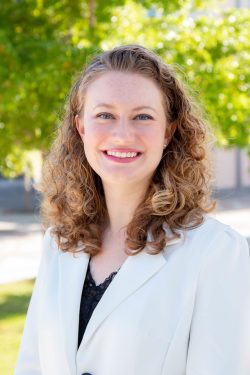 Madeline (Maddie) Tympanick serves as the Assistant Director & Career Coach, overseeing internship programs and initiatives, within the Center for Career Engagement & Opportunity (CEO) at New College of Florida in Sarasota, FL. In her role, Maddie specializes in partnering with faculty to integrate experiential learning into academic programs and serves as a consultant for community partners developing internship programs/positions. She has developed and launched multiple programs that increase access to paid internships, including the Sarasota-Manatee Arts & Humanities (SMAH) Internship Program and a newly admitted internship scholarship that can be used for an unpaid or underpaid (below minimum wage) internship. Additionally, she is a skilled career coach with a passion for helping students become active agents in their own career planning. Maddie holds a B.A. in Communication with minors in Theater and Gender Studies from Florida Gulf Coast University, and an M.Ed. in Higher Education Curriculum and Instruction with a concentration in College Student Affairs from the University of South Florida.
Madeline (Maddie) Tympanick serves as the Assistant Director & Career Coach, overseeing internship programs and initiatives, within the Center for Career Engagement & Opportunity (CEO) at New College of Florida in Sarasota, FL. In her role, Maddie specializes in partnering with faculty to integrate experiential learning into academic programs and serves as a consultant for community partners developing internship programs/positions. She has developed and launched multiple programs that increase access to paid internships, including the Sarasota-Manatee Arts & Humanities (SMAH) Internship Program and a newly admitted internship scholarship that can be used for an unpaid or underpaid (below minimum wage) internship. Additionally, she is a skilled career coach with a passion for helping students become active agents in their own career planning. Maddie holds a B.A. in Communication with minors in Theater and Gender Studies from Florida Gulf Coast University, and an M.Ed. in Higher Education Curriculum and Instruction with a concentration in College Student Affairs from the University of South Florida.
 E-mail: info@ceiainc.org © 2022 Cooperative Education & Internship Association, Inc. | Contact Us | Privacy Policy | Login | Refund Policy
E-mail: info@ceiainc.org © 2022 Cooperative Education & Internship Association, Inc. | Contact Us | Privacy Policy | Login | Refund Policy
